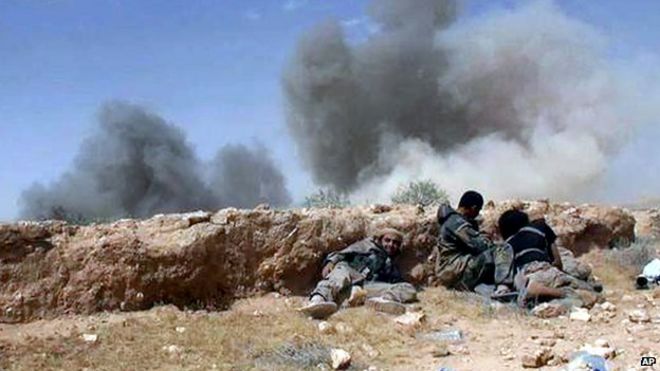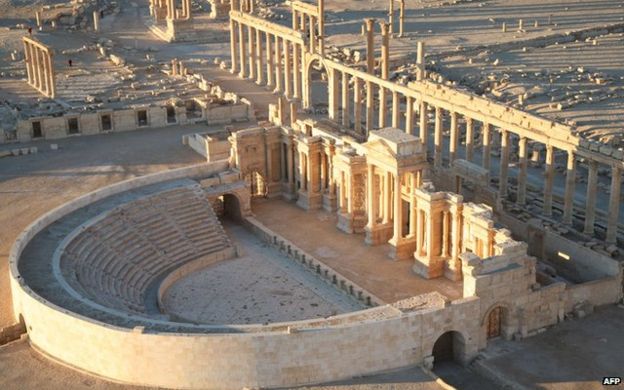
Islamic State fighters have forced Syrian troops to retreat from key positions
Islamic State militants have seized the last Syrian government-controlled border crossing between Syria and Iraq, a Syrian activist group says.
Government forces withdrew from al-Tanf – known as al-Waleed in Iraq – crossing as IS advanced, the Syrian Observatory for Human Rights (SOHR) said.
The loss of al-Tanf to IS follows the group’s takeover of the ancient city of Palmyra on Thursday.
The US says that fighting the militants will be a “difficult challenge”.
Islamic State now controls “more than 95,000 sq km (36,679 sq miles)” of Syria, which is 50% of the country’s entire territory, the SOHR said.
The militants dominate the provinces of Deir Ezzor and Raqqa and have a strong presence in Hasakeh, Aleppo, Homs and Hama.
However, correspondents say there are large areas under IS control in the east that are not very significant strategically.

The ancient site of Palmyra lies on a strategic route through the desert
On Thursday the United Nations said it had received reports that Syrian forces in Palmyra prevented civilians from leaving, ahead of its fall to Islamic State.
It said it was “deeply concerned” about the plight of those remaining in the area, amid reports of summary executions.
IS has also overrun the World Heritage site adjacent to the modern city, raising concerns about its future. The militants have previously demolished ancient sites that pre-date Islam.
‘Not losing’
The group has also been making gains in Iraq, capturing Ramadi after weeks of fighting.
The US has acknowledged the militants’ gains are a “setback” for coalition forces targeting IS, but President Barack Obama insisted the US was “not losing” the war with the group.
“There’s no doubt there was a tactical setback, although Ramadi had been vulnerable for a very long time,” he told The Atlantic magazine in an interview published on Thursday.
“The training of Iraqi security forces, the fortifications, the command-and-control systems are not happening fast enough in Anbar, in the Sunni parts of the country.”
White House spokesman Josh Earnest said the problem of IS was “not going to be solved overnight”.
“Until we’re able to build up local forces on the ground in Syria who can take the fight to Isil [IS] in their own country,” he said, “this is going to continue to be a difficult challenge.”
BBC
 Q FM Africa's Modern Radio
Q FM Africa's Modern Radio